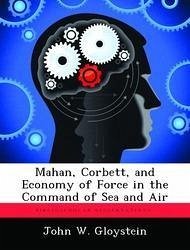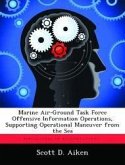Julian Corbett and Alfred T. Mahan each proposed theories for command of the sea. Their work illustrated that different strategic and operational mediums required distinct frames of reference. In this thesis, I examine Mahan and Corbett's concepts and their possible contributions to modern airpower theory. Mahan and Corbett examined Great Britain's naval mastery at its apparent peak; an environmental context that parallels the United States' current command of the air. Mahan and Corbett viewed the medium of the sea from different vantage points, however, resulting in considerable differences in the strategic implications each drew from their studies. Mahan felt that naval forces could locate and destroy each other on the sea. Thus, the only method to command the sea was to destroy opposing naval forces. Once gained, command of the sea provided an inherent, continuing advantage that a nation could use to economically isolate an enemy nation and reduce its capability to challenge sea command. These concepts are applicable to airpower theory, and suggest that enemy air forces must be the first targets of an air campaign to allow freedom of action for follow-on airpower effects, ensuring those enemy forces are unable to return. Finally, nations should use command of the air to deter future challengers.
Hinweis: Dieser Artikel kann nur an eine deutsche Lieferadresse ausgeliefert werden.
Hinweis: Dieser Artikel kann nur an eine deutsche Lieferadresse ausgeliefert werden.








